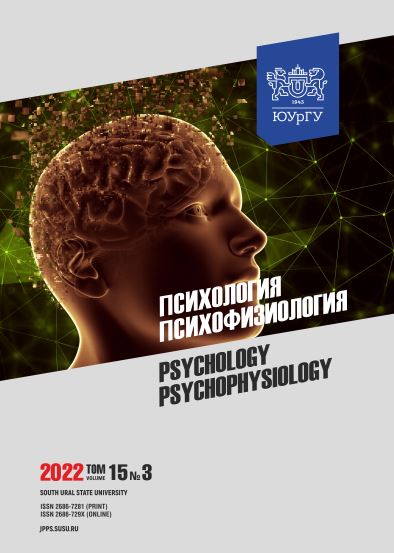Psychological and pedagogical aspects of creating motivation for physical education and sport in persons with health conditions
Abstract
Introduction. One of the important problems associated with physical education for people with health conditions is identifying the features of their motivation for physical education. Purposefulness and the interest of students in their activities depend on motivation. Creating motivation requires identifying the elements of the motivational system. Therefore, there is a need to identify the psychological and pedagogical aspects of motivation. Aims: the paper aims to identify the motives for physical education and sport and their structure in persons with health conditions. Materials and methods. The following methods were implemented: literature review, empirical research, comparative analysis. The method of A. Shaboltas
(“Motives for sports”), which suggests the presence of the basic motives for physical education and sport, was used to find personal values associated with physical education. The study involved two groups of students (with and without health conditions). Results: the results obtained in empirical studies were compared with the method of A. Shaboltas and motivation theories of A. Maslow and K. Alderfer. It was found that dominant motives corresponded to the average level of the hierarchy of needs (love and belonging). The author developed a structure of motives of people with health conditions, which was considered as a relationship between needs and motives that determined the need for socialization, recognition and self-esteem. Conclusion: as a result of the study, it was confirmed that the motives of social and physical self-esteem were more pronounced in sports activities among persons with health conditions compared to healthy individuals.
Downloads
References
Vasilchenko M.V., Dautov D.F. Some features of suicidal behavior of teenagers. Izvestiya Yuzhnogo federalnogo universiteta. Pedagogicheskie nauki = Bulletin of the Southern Federal University. Pedagogical sciences. 2015;6:149–154
Vrono E. Life is a penny. Zdorove shkolnika = School student health. 2012;2:60–61. (in Russ.).
Gilinsky Ya.I. Deviantology: sociology of crime, drug addiction, prostitution, suicide and other “deviations”. St. Petersburg: Publ. house “Alef-Press”, 2013:650. (in Russ.).
Shalomova E.V. Moral education as an important condition for the prevention of addictive behavior of adolescents. Mir nauki, kultury, obrazovaniya = The world of science, culture and education. 2018;3(70):154–158. (in Russ.).
Prutchenkov A.S., Snylov A.A. Ei ty, paranoik! O psikhotipakh lichnosti, o diagnostike aktsentuatsii kharaktera detei i pedagogicheskoi pomoshchi im [Hey you, paranoid! About personality psychotypes, about the diagnosis of accentuation of the character of children, and pedagogical assistance to them]. Moscow: Novaya shkola Publ. 1994:64. (in Russ.).
King P. Assertiveness: speak out. To say “o”. Set boundaries. Get control. Pkcs Media, Inc. 2019:262.
Trusova A.S., Korepanova E.A. Assertiveness as a method of protection from psychological destructive influence (on the problem of psychological security of the educational environment). Nauka i obrazovanie = Science and Education. 2018;3-4. URL: http://opusmgau.ru/index.php/see/article/view/532
Galstyan G.S. The influence of alcohol and drug addiction on juvenile suicide. Vestnik Adygeiskogo gosudarstvennogo universiteta. Regionovedenie: filosofiya, istoriya, sotsiologiya, yurisprudentsiya, politologiya, kulturologiya = Bulletin of the Adygea State University. Series "Regional Studies: Philosophy, history, sociology, law, Political Science, cultural Studies. 2010;3(64):158–162. (in Russ.).
References on translit
Vasilchenko M.V., Dautov D.F. Some features of suicidal behavior of teenagers. Izvestiya Yuzhnogo federalnogo universiteta. Pedagogicheskie nauki = Bulletin of the Southern Federal University. Pedagogical sciences. 2015;6:149–154
Vrono E. Life is a penny. Zdorove shkolnika = School student health. 2012;2:60–61. (in Russ.).
Gilinsky Ya.I. Deviantology: sociology of crime, drug addiction, prostitution, suicide and other “deviations”. St. Petersburg: Publ. house “Alef-Press”, 2013:650. (in Russ.).
Shalomova E.V. Moral education as an important condition for the prevention of addictive behavior of adolescents. Mir nauki, kultury, obrazovaniya = The world of science, culture and education. 2018;3(70):154–158. (in Russ.).
Prutchenkov A.S., Snylov A.A. Ei ty, paranoik! O psikhotipakh lichnosti, o diagnostike aktsentuatsii kharaktera detei i pedagogicheskoi pomoshchi im [Hey you, paranoid! About personality psychotypes, about the diagnosis of accentuation of the character of children, and pedagogical assistance to them]. Moscow: Novaya shkola Publ. 1994:64. (in Russ.).
King P. Assertiveness: speak out. To say “o”. Set boundaries. Get control. Pkcs Media, Inc. 2019:262.
Trusova A.S., Korepanova E.A. Assertiveness as a method of protection from psychological destructive influence (on the problem of psychological security of the educational environment). Nauka i obrazovanie = Science and Education. 2018;3-4. URL: http://opusmgau.ru/index.php/see/article/view/532
Galstyan G.S. The influence of alcohol and drug addiction on juvenile suicide. Vestnik Adygeiskogo gosudarstvennogo universiteta. Regionovedenie: filosofiya, istoriya, sotsiologiya, yurisprudentsiya, politologiya, kulturologiya = Bulletin of the Adygea State University. Series "Regional Studies: Philosophy, history, sociology, law, Political Science, cultural Studies. 2010;3(64):158–162. (in Russ.).
Copyright (c) 2022 Psychology. Psychophysiology

This work is licensed under a Creative Commons Attribution-NonCommercial-NoDerivatives 4.0 International License.



